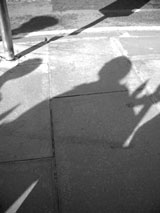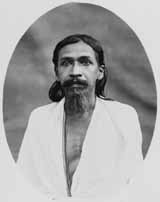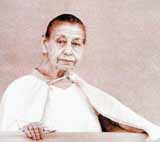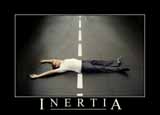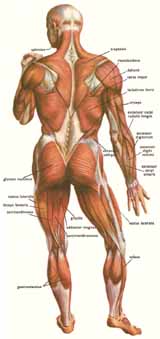Inner approach to health
Coming up for air
Editor’s note
Depression is a destroyer which often goes unrecognised, especially in societies where it is considered a weakness to cry or admit low feelings in public. Nevertheless it is perhaps the single most common affliction of mankind and one that often starts corroding almost every other physiological system in the body. While there are many drugs in the market and many counselling methods have been used over the decades to fight depression, the spiritual way is one that brings a radical and deeper understanding of its inner causes and a lasting cure. In this context, the article examines some of the key processes from an integral point of view.
Depression is a hidden killer. Goodness knows how much illness and death it secretly induces. In truth, it has become a world malaise and works through attachment and contagion behind the scenes, creating a vacuum for degeneration. Depression is also a suffocating experience and escaping its clutches might be likened to coming up for air.
But because man exists largely on the surface he lacks the equipment to deal with this affliction. It is very clear that it is not circumstances which make man depressed but how he reacts to them. So long as he remains a dupe to his true nature, nothing can be truly changed. He will always remain a victim of circumstance, tossed about by adverse events and a slave to whatever shocks come from outside. Not surprisingly, he usually seeks remedy on the outside too, resorting to anti-depressants or other, less legitimate, forms of substance abuse. Rarely does he take the trouble to enquire into the root of the malady.
In reality, most of us need distractions. We need something to divert us from the long and often difficult exploration inside. As the Mother observes:
“Constantly man rushes into external action in order not to have time to observe himself and how he lives. For him this is expressed by the desire to escape from boredom. Indeed, for some people it is much more tiresome to remain quiet — seated, or to be still…. And when they sit quietly and look at themselves, they are bored (1).”
That’s probably why the biggest business in society is entertainment. If man doesn’t get it, he becomes simply listless and bored. He needs the outside to fulfil his life. When that doesn’t happen, he becomes depressed. Sometimes a feeling of lack and inadequacy will get justified by life situations but the actual scourge has already arisen inside. I guess this is only ignorance, pure and simple. We can clearly see why the Mother once coined an aimless life as a miserable life.
I have observed this trend very particularly in the West. Maybe it is also starting to happen in India too. With the incredible advances in technology man has built so many props to ease his existence. But the more his life gets supported in this way, the more the cancer tends to grow inside. His inner fortitude disappears and he forgets his ultimate support system, relying only on what he conceives as material realities. So he lives his life on the surface and can only depend on its produce to enrich his life. On the face of it, it may appear an extravagantly rich fare but really it is a very poor diet! Man cannot get true nourishment simply by eating the scraps from his desires.
Man can so easily lose touch with his truth. The inner child is his only truth, not the dramas he passes through day by day. By identifying with the drama, man will only find himself entangled in it. He might even neglect to smile, forgetting that a simple smile might not only nourish him inside but also brighten some of the greyness that surrounds him.
I believe depression to be just another mode of ignorance; it proliferates where that state exists and thrives. Depression, to a degree, is a matter of choice. One chooses to live one’s life in a certain direction and so has to bear the consequences of that choice. In the realm of ignorance, nothing can entirely remove its spectre; one just has to learn to muddle through. However, if one has a ripening soul that has taken a wrong turning then the consequences can be much graver. If one doesn’t have the faintest calling, I guess one simply merges into that vast backdrop of human misery. On the other hand, if one sincerely chooses a life of Truth, it stands to reason that there is no way this affliction should endure. Truth is also Bliss: there can be no room for distortion in the realm of Truth.
The dangers of growing
But getting there is rarely as simple as that. When I first started probing this subject, a question came to mind. Let us take this familiar scenario: someone has made that critical choice. He or she has decided to commit to a life of truth and answer a calling of the soul. I guess that there can be few choices more sincere than that. However, as time goes by, he or she may find that the feeling of depression has not entirely lifted. Far from it, in spite of all efforts, the shadow may have even expanded to colossal proportions! It seems to be a perennial problem: man, in search of the sweetest honey, disturbs the beehive and only exasperates the situation even more.
Don’t get me wrong, I write as one still going through the mill and yet to fully come out to the other side. I only speak from personal experience. Setting out on this path, I didn’t find life getting any easier. Indeed, what usually happens is precisely the opposite. So at the beginning, I found myself successively passing through sharp turns of duality. A single day would be comprised with a confusing array of different extremes. I had never before encountered such savage mood swings. Thankfully, there were moments of the purest gold and it was these experiences which probably kept me going.
The first change that might be observed is one of awareness. New processes will spontaneously unfold and our consciousness tangibly starts to change direction. Instead of continually gravitating to the surface, the momentum now perceptively rotates to the inside. Indeed, if we resist and try to buck the trend and keep to the old boundaries, an uncomfortable feeling usually emerges.
Our awareness also sharpens and we may become more conscious of the negativities that lie inside. We also become more sensitive, particularly to those things that no longer fit. The old tendencies of ordinary life sometimes appear to accentuate in our new way of living, probably because they have now come to our attention. This change can be very unsettling and many of our weaknesses become glaringly evident. But I believe that this change can be welcomed. It is a sign that we are slowly becoming more transparent, a change initiated by our consciousness. The only option is to see it through to the very end. How can we ever get rid of these thorns if we aren’t aware of them? Once they emerge into the light of day, we then have the opportunity to efface them for good. That, for me, is the power of consciousness; it ushers knowledge and simply vibrates with what is true. Indeed every time we align ourselves around our seat of truth (the soul), these dark patches gradually erase and we are able eventually to restore some harmony and equilibrium. But it takes time and the process requires continual repetition and reinforcement. So in growing, things like depression might often cast a shadow but when that happens we have the decisive chance to clear them away for good.
As soon as I started this journey, I also realised that the stakes had somehow got so much higher. It became apparent to me this work was clearly not for my own individuality; something much vaster is the aim. To be a part of this work, in whatever capacity, is such a priceless privilege. But broad shoulders and a resolute determination are also required. Enormous forces are present and when I had been here* a while, I gradually became aware of those that this work is up against.
The opposition
There are countless entities that strive to reverse every progress and these elements, termed the ‘hostile forces’ in the Integral Yoga, can use depression to devastating effect. It is their business to make man contract, not grow and anyone on an upward path is always liable to attract their special attention. They hunt for shelter amidst our darker marks inside. Once lodged, they then aim to spread and proliferate. So the only surety we have is our soul. As soon as we become aware of this part of us, I believe it better to cling onto it for dear life. I guess that is the single place they cannot dwell. And we are so graced to have our focal point in the Mother. It is truly the Mother who embodies everything we strive for. Once this simple truth is fully absorbed, I find that these forces tend to lose all meaning. It makes life a lot less complicated because we can then learn to detach and step back from those factors that used to plague us. Growing is learning and one essential lesson is trust in the guide. As long as that guide stands for the Truth, it is perhaps not so important who or what it is. But without this trust, we risk losing our bearings and run the danger of getting swamped.
Depression and ego
Most of the time people get depressed without knowing why it happens. It can simply engulf us for no apparent rhyme or reason. Very often the origin of our mood swings can get very blurred. I guess that it has happened to us all at some point of our lives. That is probably because everything tends to get tangled up inside. We certainly need to look at why this happens. This is perhaps one major reason why people find depression so perplexing. To tell the truth though, man is so immersed in his ego-consciousness, in what Sri Aurobindo terms the domain of ignorance, it is simply impossible for him ever to find out! We sometimes get so wrapped up in ourselves we almost forget the world outside. Furthermore, we get so engrossed in surface concerns that we forget who we really are.
The ego has a way of distortion. Man begins with hope, maybe even an ideal. The ego twists this hope and makes it sour. Then it becomes an expectation. The process takes place undercover and when that expectation is not fulfilled, he becomes depressed: it all happens outside his awareness.
The only failsafe way to overcome depression is to move to a higher determinism and just observe: the closer we get to the realm of the soul the sharper our picture becomes, if we take the trouble to look. By withdrawing from the surface and invoking the Mother’s help, I have found an inner light start to radiate and every hidden dark corner gradually comes to view. The arena is always the body; it is our final outpost, if you like. Everything eventually surfaces there. But it is a process of inner enquiry and when the consciousness stops and focuses on a particular area, it finds a way of unearthing the truth behind each affliction. An insight will sooner or later emerge and I find it then helpful to give it expression. A single word can sometimes bring catharsis: it completely purges the distortion. But with the discovery also comes a spontaneous resolution. It puts things back in place; it gives us back a new sense of harmony. Ultimately it is only the Truth that can completely resolve. This is why I understand that knowledge is the ultimate cure. The whole practice may take time but by patiently directing our enquiry, the light can probe deeper and deeper. We then might find ourselves going from surface symptoms to deeper causes. Ultimately we may even realise the underlying cause that had so clouded our vision in the first place: the ego.
So in short, it is better to step out of our drama and look at ourselves in a detached and disinterested light. In Sri Aurobindo’s words:
“The rule in yoga is not to let the depression depress you, but to stand back from it, observe its cause and remove the cause; for the cause is always in oneself, perhaps a vital defect somewhere, a wrong movement indulged or a petty desire causing a recoil, sometimes by its satisfaction, sometimes by its disappointment (2).”
To do this, I feel that we have to make an effort to rise in consciousness. We need a more solid platform to deal with the affliction. Even the higher realms of the mind or vital may help. However, once one has come into touch with the soul, I believe that there is only one way. At least, that is my understanding. It is, after all, our unique seat of truth. More than just observation, it has “the capacity for a direct vision of things (3).” The ‘searchlight’ is clearly its instrument and that is why, for me, it offers the only definitive solution to whatever difficulty that might arise. Afterwards then, the work involves consolidating this influence until it can leave a permanent mark. That necessitates a continual realignment so that the psychic light can find a home in our entire being and even beyond.
Specific causes
Knowing the cause will invariably give us the right solution. As the Mother says:
“Depression may come from two causes: either from a want of vital satisfaction or from a considerable nervous fatigue in the body. Depression arising from physical fatigue is set right fairly easily: one has but to take rest. One goes to bed and sleeps until one feels well again, or else one rests, dreams, lies down. The want of vital satisfaction comes up rather easily and usually one must face it with one’s reason, must ferret out the cause of the depression, what has brought about the lack of satisfaction in the vital; and then one looks at it straight in the face and asks oneself whether that has anything to do with one’s inner aspiration and one can quite easily overcome it and resume one’s normal movement. If that is not enough, then one must go deeper and deeper until one touches one’s psychic reality. Then one has only to put this psychic reality in contact with the movement of depression, and instantaneously it will vanish into thin air.
“As for fighting in the vital domain itself — well, some people are good fighters and love to struggle with their vital — but to tell you the truth, that is much more difficult (4).”
The Mother also states that depression arrives because our consciousness somehow finds itself in the wrong place. It stands to reason then, that the best solution is to give this consciousness a truer home:
“… there’s a very simple way. Depression occurs generally in the vital, and one is overpowered by depression only when one keeps the consciousness in the vital, when one remains there. The only thing to do is to get out of the vital and enter a deeper consciousness. Even the higher mind, the luminous, higher mind, the most lofty thoughts have the power to drive away depression. Even when one reaches just the highest domains of thought, usually the depression disappears. But in any case, if one seeks shelter in the psychic, then there is no longer any room for depression (5).”
The vital, of course, is the domain of desire and so it is hardly surprising that Sri Aurobindo and the Mother have both stated that a chief reason for depression is the thwarting of desire. We all know that desire is a suffocating experience and probably as much as depression itself. It is so suffocating that it has the power to become our only reality. That is why, there is often such a reluctance to let go of either of these two states. That betrays, the Mother has observed, a weakness in the being, a bad will:
“Not to be depressed — it is extremely important. Depression is a sign of weakness, of a bad will somewhere, and bad will in the sense of a refusal to receive help, and a kind of weakness that’s content to be weak. One becomes slack. The bad will is obvious, because there’s a part of your being which tells you at the moment, ‘Depression is bad.’ You know that you shouldn’t get depressed: well, the reply of that part which is depressed is almost, ‘Shut up! I want my depression.’ Try, you will see, you can try. It is always like that. Eh, it is not true? And later on one says again, ‘Afterwards, afterwards I shall see… for the moment I want it, and besides I have my reasons.’ There you are. It is a kind of revolt, a weak revolt, the revolt of something weak in the being (6).”
A strong will
But there are certainly ways of making the weak strong. After all, that is the aim of most exercise. Like the body, I believe the will can also be made strong. I suppose the first requirement is just to observe. We need to trace the inner movements that comprise our will so they can then be harmonised. That is truly a function of our searchlight. When we do this exercise we will inevitably find these movements, not least our desires and instincts, all tangled up and confused. They have to be identified, distinguished and traced back to their source. And because our will is divided, it is weak. To a degree, man is not much more than a mass of conflicting wills. But what sets him apart is his soul. A strong will is a unified will and the only way to unify and harmonise these disparate elements is through the intervention of the psychic. Only the soul can unify the will and make it strong; I truly believe that it can be done. But sincerity is essential because times will come when these competing wills will try to run roughshod over our central aspiration.
It is the will which gives man true self-control. True control, I feel, is not really a province of the mind, although it can certainly help in the early stages. The mind has a liking for rigid structures and when it comes down to dealing with instincts and desires it knows only one way and that is to suppress. It also tends to smother them in judgment. But somehow, we have to find a way of overcoming our baser instincts without turning the exercise into a moral crusade. I believe the psychic can be enlisted into the process. Otherwise the process might become incredibly narrow. Control implies harmony not coercion. The soul fulfils a task which simply goes beyond all definition.
Depression and habit
Depression can indeed become a habit and Sri Aurobindo even likens it to a machine:
“This tendency to irrational sadness and despondency and these imaginations, fears and perverse reasonings — always repeating, if you will take careful notice, the same movements, ideas and feelings and even the same language and phrases like a machine — is a characteristic working of the lower vital nature. The only way to get rid of it is to meet it with a fixed resolution of the higher vital and the mind and the psychic being to combat, reject and master it (7).”
These emotions spiral around the grooves of our nature. It has been interesting to observe how a dark cloud may regularly try to enter at a particular time of the day. There seem to be certain trigger points in us all which induce habitual reaction and depression can become just that: a habit. These trigger points seem to be indelibly linked to associations from our past. They unearth subconscious negativities which can produce a dreary mindset or even depression. A familiar face, a chance encounter, or even a change of season can sometimes be enough to set off this knee-jerk response. These trigger points are as numerous as the many faces of nature. I don’t believe that there is much that we ourselves can do about these patterns but our consciousness certainly can. Knowledge has a way of shedding light and where the light falls there can be no room for affliction. But when we’re dealing with subconscious realms, I feel it better not to sink down to them but just observe and patiently keep our station above. From that point, if we call them, the Mother’s Force and Light can percolate down to every part of our being. Bringing light down to this part of our nature can be a long process. Consequently Sri Aurobindo advises us to start with the body and patiently wait until it filters down to this obscure region. Gradually, I find that one by one, the strands become a little more visible and over time, we start to recognise these habits which proceed to hold less sway.
Parallel lines
The most effective way to counter depression, we have noted, is to move to a higher poise and exert that influence from above. But it is not always as simple as that. This problem usually arises in the vital and the vital, we all know, can be a very fickle fellow! It is very evident that the vital cannot be spiritualised overnight. To attempt to do so may prove even foolhardy and dangerous. Trying to force every vital movement prematurely into the realm of the spirit will inevitably lead to revolt. There are parts of the lower vital which simply do not want to change. So a patient approach is always advisable.
The behaviour of the mind in this sphere can be very inhibiting too. The ordinary mind has a very limited compass and certainly possesses an exaggerated sense of its own importance. It always thinks it knows best and if convinced of a course, it will then try to rigidly impose it on everything regardless of circumstance. It lacks the free interplay of the soul. Our vitality needs room to breathe and will get very flat when we try to pin it down into the corridors of the mind. To starve it is only the ascetic way.
Nothing abhors the vital more than routine, so a change of scenery, in certain circumstances, may prove more productive than even a change of poise. It is not always easy to move up a few rungs if the vital is on the verge of going on strike. Now and then, when life gets a little stale, I find it helpful to disengage from my familiar backdrop. I can then more easily detach and gently enquire into what is really dragging me down. The shift helps to break up old patterns and I am sometimes able to look at them in a new light. The time away can provide an immense recharge and the vital’s natural élan usually gets restored.
So instead of working exclusively from above, I might also proceed from the same level. Our vitality also needs nourishment and can indeed be elevated (though not by pampering). The vital is a vast domain and I believe that it is helpful to stimulate its higher regions so that a positive influence can seep down to the lower parts. There are many ways one can do this. Just listening to music, for example, is usually enough to restore peace and harmony to this part of my nature.
Integral living
To invoke an integral health, it obviouslyhelps to induce a more integral way of living. How we spend our leisure time can be particularly significant. For many people, to slump into a state of inertia seems to be a customary way of ending the day. We don’t need to look too far to see why so many people are bored in this world. It is a way of life which creates only dullness. The Mother had always embraced a multi-faceted approach to living: She always encouraged a breadth of activity. I believe that it is good to broaden our interests and sometimes try new areas of activity. I often marvel at how people here successfully adopt this approach. Apart from anything else, it helps keep the mind active and vitality vibrant and alive. It gives energy and helps us grow; it widens our field of creativity. One somehow feels more rounded and whole. Our work here demands a synthesis of inner and outer activities and by creatively giving energy to the outside we help complete the circle. Every aspect of our lives, not least its expression, can be touched by this plenitude.
Work is one obvious way of keeping the vital buoyant and engaged. It provides such meaning to our lives that a whole branch of yoga has been centred on it. But work doesn’t necessarily have to be just something we have to do; it can also be a joy and one that we freely offer.
Staying presentI don’t believe that there are many psychological states superior to the present. If we think about it, most depression comes from attachment to the past. The mind particularly has a tendency to dwell on it and it will then concoct dismal projections into the future. Our future expectations are only built on the grains of the past. That can sometimes produce a sense of dread and foreboding. So to be present is truly a state of freedom; it shows us the way to live without attachment. To be present is also a joy but the problem is that we often forget this and slide back to the patterns of the past. That is why the state needs careful cultivation. Being present is a radical state of consciousness and, in my point of view, it cannot be separated from the body.
After all, we cannot forget the body. Being present is a factor of both time and space. To be present, I believe, one also has to be grounded and fully alive in the body. And what is the purpose of the body after all? By maintaining consciousness in the body, we initiate a crucial shift in our being. We might wonder why this is so. Perhaps it is because when present we are also living in our truth. The body has a natural connection with the truth of our being. Indeed, the Mother once compared the psychic being to “an electric wire that connects the generator with the lamp (8).” The generator is the Divine and the lamp is the body. She has also said that the psychic has a closer affinity with the physical than with the mind or the vital.1
So when one is grounded, it is always easier to contact one’s true centre. From personal experience, I feel a greater sense of wholeness and plenitude when I am working with the body. Perhaps the difficulties experienced there are only a part of a diverse tapestry of the whole. I find that it certainly helps to look at the situation this way! I also notice that any doldrums lift when I attentively work on the body. Occasionally I might even notice a cloud disappearing when I do my simple exercises.
Escape or confrontation
So living in the body finalises a totality of experience. I don’t believe that I’m an exception. However, I must confess that there is a temptation to escape now and then. As soon as our practice goes down to the body, difficulties start to emerge and certainly my body is no exception. In a sense, it is like trying to change the unchangeable. But that is only a rigid appearance. Not surprisingly, escape is the usual answer afforded by most yogas in this country. But the example of Sri Aurobindo and the Mother has always prevented me from doing this. Through them, I now feel compelled to face my challenges rather than always try to rise above them.
So confrontation is characteristic of our path. Many of us know that manifesting the Divine in matter is a principal objective of the Integral Yoga. So we cannot leave our body behind. Neither can we afford to neglect the gift of life too. So if we want to avoid depression on this path we have to work through our issues and not try to always rise above them. Difficulty and suffering can sometimes be encountered on the way but that is part of the totality of experience, at least for the time being.
In the Integral Yoga, it is my understanding that we must work in the manifestation and not make it our aim to rise above it. The aim is not to escape from this world of pain and duality but to transform it. There comes a time on this road when one can no longer avoid facing this. We find that we can no longer escape life. The problem with rising above our negative patterns is that they don’t really go away: we just lose touch with them. They may become insignificant but they are never truly solved.
The traditional way certainly offers one way of dealing with depression. But the problem will always remain however high one climbs. In the end, it cannot conquer because it cannot transform. Even if we choose to close every door and live in yogic tranquillity, there is every prospect that deep-rooted patterns may unexpectedly reappear at any moment. It is a single-pointed approach and certainly has an appeal. But it turns its back on creation and that, I guess, is its central flaw. And by disconnecting from both life and body, one leaves behind so much unfinished business. We even lose our sense of integrality: we are no longer whole. It is a little like living on top of a mountain and shunning the world down below.
Coming up
Coming out of depression doesn’t have to be like emerging from quicksand. However, it sometimes takes an immense effort to come up for air. When one is down in the mud one can see and feel only mud but the Hand is always there, ready to pull us out. The problem is that we can get so immersed in our own crisis that we sometimes forget to even call for true help. In an emergency, we look outside for solutions. It needs a strong determination to overcome this state and to entirely cure it we have to summon all our resources inside.
But when we at last surface into the cool light of day, not surprisingly, we also find that something has begun to shift inside. We are moving on. Depression can come in cycles so the shift may not at first be definitive. But inevitably some progress has been made:
“When one comes out of the depression and one’s bad will, well, one realises that there was an attack and that some progress had to be made, and that in spite of everything something within has made progress, that one has taken a step forward. Usually, hardly consciously, it is something which needs to progress but doesn’t want to, and so takes this way; like a child who sulks, becomes low-spirited, sad, unhappy, misunderstood, abandoned, helpless; and then refusing to collaborate, and as I just said, indulging in the depression, to show that he is not happy. It is specially in order to show that one is not satisfied that one becomes depressed. One can show it to Nature, one can show it (that depends on the case, you see), one can show it to the Divine, one can show it to the people around one, but it is always a kind of way of expressing one’s dissatisfaction. ‘I am not happy about what you demand’ but this means, ‘I am not happy. And I shall make you too see it, that I am not happy.’ There you are.
“But when it is over, and when for some reason or other one has made the necessary effort to come out of it, and has come out, one usually realises that something in the being has changed, because, in spite of all bad will, most often the progress was accomplished — not very swiftly, not very brilliantly, not for one’s greater glory, surely, but still the progress was made. Something has changed (10).”
References
1. The Mother. Collected Works of the Mother, Volume 7. Pondicherry; Sri Aurobindo Ashram Trust, 1979, p.25.
2. Sri Aurobindo. SABCL, Volume 24. Pondicherry; Sri Aurobindo Ashram Trust, 1970, pp. 1347-8.
3. Op. cit. Collected Works of the Mother, Volume 6. Pondicherry; Sri Aurobindo Ashram Trust, 1979, p.8.
4. Ibid. pp.32-3.
5. Ibid. p.32.
6. Op. cit. Collected Works of the Mother, Volume 7. Pondicherry; Sri Aurobindo Ashram Trust, 1979, p.10.
7. Op. cit. SABCL, Volume 24. Pondicherry; Sri Aurobindo Ashram Trust, 1970, p. 1351.
8. Op. cit. Collected Works of the Mother, Volume 6. Pondicherry; Sri Aurobindo Ashram Trust, 1979, p.160.
9. Ibid. p. 6.
10. Op cit. Collected Works of the Mother, Volume 7. Pondicherry; Sri Aurobindo Ashram Trust, 1979, pp. 10-1.
*At the Sri Aurobindo Ashram, Pondicherry.
1“In fact the physical being has a simplicity and even a goodwill (which is not always very enlightened, far from it), but still a simplicity and goodwill which put it in a closer relation with the psychic than the passions of the vital or the pretensions of the mind (9).”
Mr. James Anderson, a sadhak, is following the Yoga of Sri Aurobindo and working at SAIIIHR, Pondicherry.
Share with us (Comments, contributions, opinions)
When reproducing this feature, please credit NAMAH, and give the byline. Please send us cuttings.



